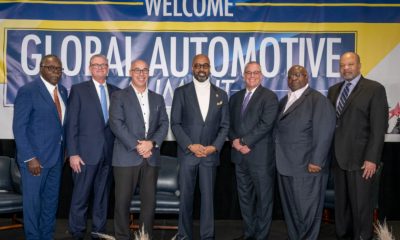
In this May 12, 2105 file photo, emergency personnel work the scene of a deadly train wreck in Philadelphia. (AP Photo/ Joseph Kaczmarek, File)
Joan Lowy and John Krishner, ASSOCIATED PRESS
WASHINGTON (AP) — At a time of record auto recalls and high-profile train wrecks, Republicans are working on legislation to roll back safety regulation of the auto and railroad industries.
A bill approved this week on a party-line vote by a Senate committee brims with industry-sought provisions that would block, delay or roll back safety rules. The measure is to be part of a must-pass transportation bill that GOP leaders hope to put to a vote in the Senate as early as next week.
They are under pressure to act quickly because authority for transportation programs expires on July 31. Without a cash infusion, the government will have to delay highway and transit aid to states.
One provision would block a new Department of Transportation rule requiring that trains hauling crude oil are equipped with electronically controlled brakes that affect cars all at the same time, rather than sequentially. The bill calls for a study of the technology and puts off any regulatory mandate, which could delay implementation for years.
The brake rule was prompted by a series of train wrecks in which cars of crude oil and ethanol exploded, igniting fires that burned for days. Freight railroads oppose the rule, which could cost them billions of dollars.
Another provision would give freight and commuter railroads and Amtrak more time to install a safety system called positive train control. The technology relies on GPS, wireless radio and computers to monitor train position and slow or stop trains in danger of derailing because they’re traveling too fast, are about to collide with another train or are about to enter an area where crews are working on tracks.
A 2008 law requires railroads to have the technology installed and operating by the end of this year. Most are not expected to make that deadline.
The National Transportation Safety Board says that if the technology had been in operation, it could have prevented an Amtrak derailment in May that killed eight people and injured about 200 others in Philadelphia, and a derailment that killed four passengers and injured 64 others in New York City in December 2013, as well as other fatal accidents.
Railroads say they have spent billions of dollars on the technology but have been hampered by technical and financial difficulties and need more time.
The bill would effectively allow states to lower the qualifying age for interstate commercial truck drivers from 21 to 18. The provision was sought by the trucking industry, which says there is a shortage of drivers.
Another provision sought by the industry would require the Federal Motor Carrier Safety Administration to remove safety ratings of truck and bus companies from its public website. The companies disagree with the methodology the agency uses for the ratings.
The bill would impose requirements on the motor carrier agency that safety advocates say could stymie new safety regulations by making an already lengthy rulemaking process even more difficult.
Following record auto recalls last year totaling almost 64 million vehicles, the National Highway Traffic Safety Administration asked that its staff be increased and the limit on fines levied on offending automakers be raised to $300 million, from the current $35 million.
The Senate Commerce, Science and Transportation Committee agreed to increase the agency’s budget, but only after it satisfies 17 recommendations made by the Transportation Department’s inspector general. The maximum fine would double to $70 million, but only after the agency comes out with regulations identifying all the factors that go into calculating fines. The conditions could effectively delay action on both matters by a year or more.
Two GOP presidential candidates on the committee — Sens. Marco Rubio of Florida and Ted Cruz of Texas — didn’t attend the meeting while the bill’s provisions were being voted upon. However, the chairman, Sen. John Thune, R-S.D., cast proxy votes for them on amendments and for Cruz on final passage of the bill. Rubio voted in person in favor of passage of the bill. Several Democrats joined GOP senators in opposing changes to controversial provisions.
Thune and other Republicans on the committee said the changes were necessary reforms to federal agencies that have overstepped their bounds or have issued regulations that unfairly penalize industry without improving safety. Thune noted the bill contains several provisions sought by Democrats and safety advocates.
One of the biggest would prevent rental car agencies from renting vehicles that are under a safety recall, but have not been repaired. Initially, the bill had said rental car agencies could rent unrepaired cars if they first informed customers. Other provisions would make it easier for states to qualify for federal grants to tackle drunk driving, promote seatbelt use and address other safety issues, and start a pilot program to inform motorists of recalls when they register their cars.
That was not enough to sweeten the bill for safety advocates.
The GOP bill is “loaded down with giveaways to special interests that will set back safety for years to come,” said Jackie Gillan, president of Advocates for Highway and Auto Safety. “The influence of corporate lobbyists had more sway than commonsense and cost-effective solutions to deadly problems.”
___
Krisher reported from Detroit.
___
Follow Joan Lowy on Twitter at http://www.twitter.com/AP_Joan_Lowy and Tom Krisher at http://www.twitter.com/tkrisher.
Copyright 2015 The Associated Press. All rights reserved. This material may not be published, broadcast, rewritten or redistributed.
###


 Activism4 weeks ago
Activism4 weeks ago
 Activism4 weeks ago
Activism4 weeks ago
 Alameda County4 weeks ago
Alameda County4 weeks ago
 Activism4 weeks ago
Activism4 weeks ago
 Activism4 weeks ago
Activism4 weeks ago
 Alameda County4 weeks ago
Alameda County4 weeks ago
 Activism3 weeks ago
Activism3 weeks ago
 Black History3 weeks ago
Black History3 weeks ago



















































